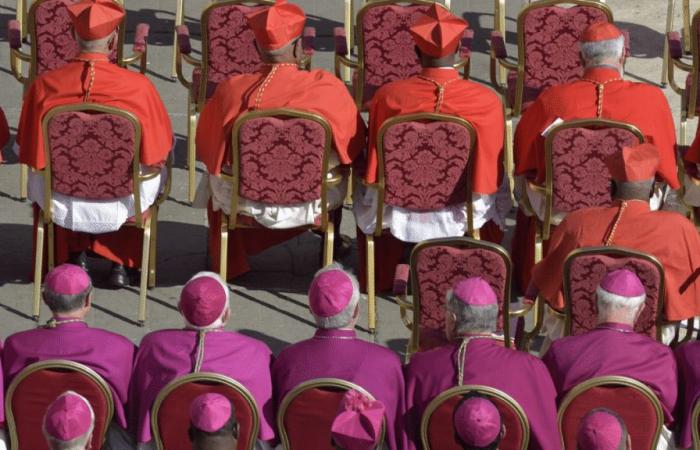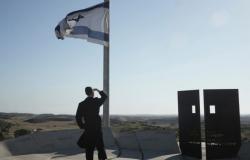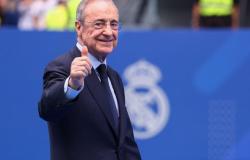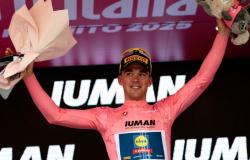On the eve of the funeral of Pope Francis and the conclave that will choose his successor, while Rome becomes the scene of prayers, speculation and composses, it is useful to look for keys and meaning in the books. Because few rituals concentrate both symbolism, history and secret and the election of the Bishop of Rome.
On April 23, Book Day, here is a list of 23 key titles to understand what will happen in the coming weeks. Vatican and theologian essays, novels that explore power, faith and corruption and even literature that brings the mystical. Among all, they draw a map of the papal drama that unfolds these days around the Vatican, that mixture of institution and mystery that challenges believers and non -believers, and the sense of spiritual in our lives.
Essay and chronicle
Javier Cercas, God’s madman at the end of the world (Random House)
This literary chronicle about an unexpected pope promises to be one of the supervants of this Sant Jordi / Book Day. Cercas builds, from doubt and admiration, a portrait of spiritual power in the era of disbelief.
Francisco, Gospel joy (San Pablo Editions)
More than a doctrinal document, this apostolic exhortation functions as a manifesto of the pontificate of the late Pope. Define the style, priorities and challenges that have marked their pastoral and political agenda.
Marco Politi, Francisco between Lobos (Economic Culture Fund)
Vibrant portrait of the pressures that Francis has faced by the Roman curia. An essential look to understand the tensions that their pontificate have marked and that are projected on the conclave.
Gianluigi Nuzzi, Cross (Sword)
Book based on filtered documents that reveal the financial scandals of the Vatican. A raw reading about internal tensions and obstacles with Pope Francis from the beginning of his pontificate.
Javier Martínez-Brocal, Pope Francis. The successor (Planet Testimony)
Chronicle of unpublished coexistence between Benedict XVI and Francisco. The Madrid journalist, correspondent in the Vatican to ABCoffers an intimate look on the last years of both potatoes and the symbolism of this coexistence.
Hans Küng, The Catholic Church. A story (Debate)
The great Swiss theologian travels two thousand years of church history with a critical and deep look, which combines erudition and commitment to reform. A fundamental work to contextualize the present moment.
Antonio Socci, The Fatima Secret Fourth (The sphere of books)
Controversial essay that mixes research with conspiracy theories. Although questioned, it is revealing the imaginary that circulates in certain sectors of the Vatican and the weight that the prophecy still has within the doctrinal debates.
Joaquín Navarro-Valls, My years with John Paul II (Sword)
Testimony from the heart of the Vatican apparatus. The spokesman of the Polish Pope who died in 2017 offers an internal look at power relations, strategic decisions and the human dimension of a long and influential pontificate.
Frédéric Martel, Sodom (Roca)
Research that explores the culture of secret and homosexuality within the Vatican clergy. A controversial but unavoidable book to understand underground currents that influence public decisions.
Eric Frattini, Popes and sex (Booked)
A story of the papacy from the angle of sexual morals, where persistent tension between doctrine and practice is revealed, between the public and the private.
Narrative and novel
Morris West, Fisherman’s sandals (Editions b)
A novel published in 1963 that anticipated the choice of a Slavic Pope. It combines political intrigue with spiritual reflection, and remains a reference in the genre of Vatican fiction.
Leonardo Sciascia, All way (Tusquets)
A spiritual retreat in which politicians and ecclesiastics meet derives in a murder. A lucid satire about Italian power, corruption and Catholicism.
Umberto Eco, The name of the rose (Lumen)
Beyond monastic intrigue, it is a meditation on heresy, knowledge and ideological control. A classic to understand the mechanisms of ecclesiastical power.
José Jiménez Lozano, The mudejarillo (Anthrophos and confluences)
Portrait of a holy and marginal figure. A work written with mystical sobriety, which raises a contrary of power and ecclesial authority.
Then Simmons, Ilium (Editions b)
Science fiction with theological elements. It includes a Ciborg papal figure and a futuristic conclave as a provocative metaphor for current tensions.
David Lodge, The author, the author! (Anagram)
Although it does not deal directly with the Church, its exploration of the vocation, doubt and ambition resonates with the spiritual tensions of the papal position.
Joris-Karl Huysmans, Far away (Valdemar)
Novel about Satanism and the decline of the clergy in Finisecular France. Disturbing, but illuminating on the shadow that pursues the institution.
Poetry, philosophy and spirituality
Joseph Ratzinger, Introduction to Christianity (Follow me)
The great theological treaty of the future Benedict XVI. A demanding, but fundamental work to understand the intellectual depth of its legacy.
Roberto Calasso, Kasch’s ruin (Anagram)
Inclasifiable book that analyzes the link between power, myth and rite. Calasso helps read the conclave as a symbolic act rather than as a simple administrative choice.
Paul Claudel, The Annunciation to María (Meeting)
Drama in verse about vocation and sacrifice. Claudel offers a radically spiritual vision of the sense of Christian surrender.
Fabrice Hadjadj, The faith of demons (New Start)
A provocative philosophical and theological essay, which plays with language and thought to revive essential questions about faith and power.
Natalia Ginzburg, The little virtues (Cliff)
An ethical and silent look on everyday life. Ginzburg, from a secular position, offers keys to think about the morals outside the dogma.
Simone Weil, Gravity and grace (Trotta)
An unclassifiable book, as its author: Agnostic mysticism, Christian philosopher without a church, Jewish converted to Christ but reluctant to baptism. In these fragmentary pages, Simone Weil talks about grace as what interrupts the logic of power, even in the Church. Her faith without belonging, her extreme lucidity, have made her a secret reference for injured and non -believers fascinated believers. A reading that destabilizes but also comforts, and that says a lot – without talking directly about the papacy – about the place where authority is emptied to let the sacred in.






